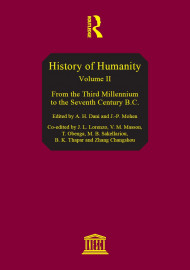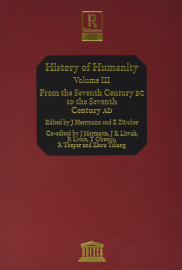DL Services SPRL
Rue Vanderborght 24
1081 Brussels Belgium
info@dl-servi.com
History of humanity: scientific and cultural development, v. VII: The Twentieth century
Available
When did the twentieth century begin? If we refer strictly to the Gregorian calendar, the response is clear, but as Charles S. Maier demonstrates in the first chapter of this volume, the period from 1901 to 1914 was, in many respects, a continuation of the nineteenth century. In the few industrialized countries of that period, social stratification continued and was intensified by technological progress. The majority of the world’s population, which did not have access to the advances of that era, was still engaged in agriculture or traditional production activities. The imperialist world order, which took the form of colonialism in Africa and Asia, was consolidated by this division. The Austro-Hungarian Empire of the Habsburg monarchy and the Russian empire of the tsars were multi-ethnic formations that survived in this political context and led to competition, crises and alliances in which colonial rivalries also played a part. If there is a break with the nineteenth century, it coincides with the First World War, which marks the beginning of what historian Eric J. Hobsbawm calls ‘the short twentieth
century’.
The post-war period
If we agree that the final battles of the absurd war that lasted from 1914 to 1918 marked the end of the nineteenth century, we must also acknowledge that in 1919, as soon as the treaties of Versailles, Saint-Germain, Trianon, Neuilly and Sèvres had been signed, many of the economic and social problems that were to beset the twentieth century emerged, as did the new century’s chosen political orientations. Having bled itself dry for more than four years, resorting to loans after using up all of its reserves to pay for weaponry, Europe forfeited the control of the world’s economy that it had exercised for centuries. It was no longer a creditor but a debtor, owing money in particular to the United States, which supplanted it as the world’s economic
leader.
904p., 2008
Génération de facture pro forma disponible dans le panier.














